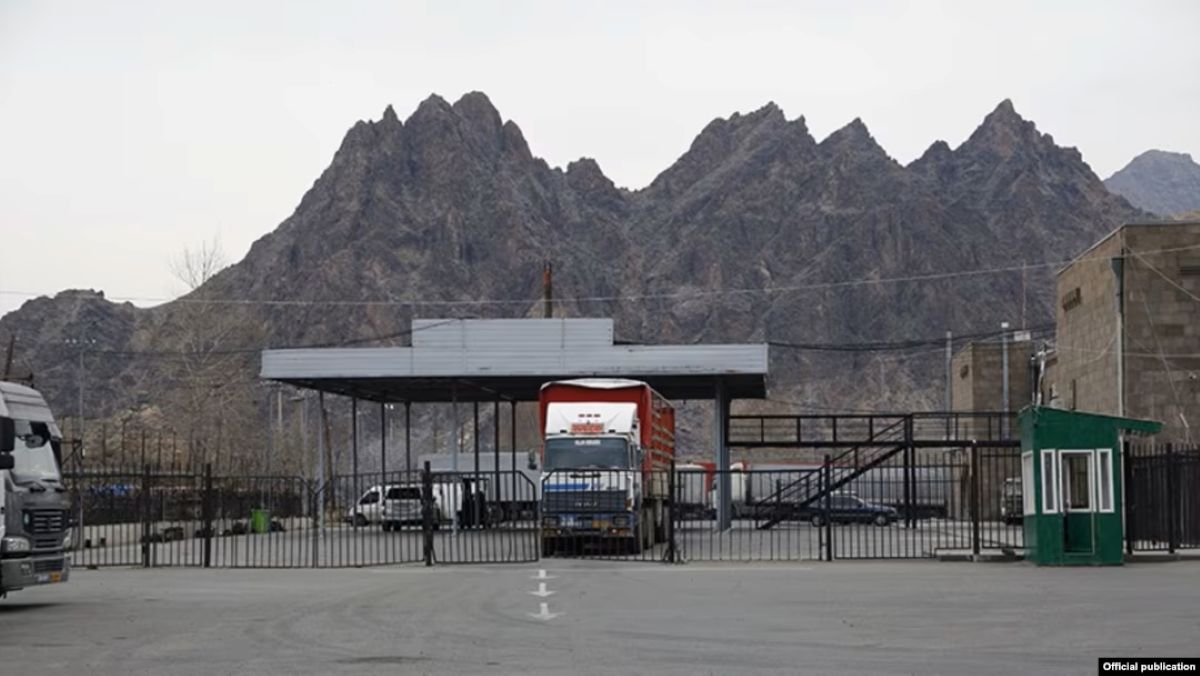Youth theatre begins street protest in Abkhazia
People have been gathering on the square in front of Sukhum’s drama theatre for several days now.
Most have come out in support of a protest started by a local youth theatre troupe who are angry after having been deprived of a stage and blame the drama theatre for it. The actors and employees of the theatre say their protest will continue until the problem of sharing the stage between the two theatres has been resolved.
• Why Abkhazia has no movie theatres
• Review: Abkhaz movies about war
• Film of a grassroots art-collective in Vladikavkaz
How it all began
The Abkhaz youth theatre was created in August 2014.
At the time, young actors, most of whom were graduates of the acting department at the Abkhaz State University, played at the Aamta Theatre, which was led by Sofa Agumaa.
The youth theatre received its legal status under one condition: that they would not have a stage of their own. For rehearsals, they were given a small room at the House of Culture, and were given one day a week, Thursdays, to perform at the Bolshoi Theatre.
On 15 November 2018 the Youth Theatre planned a performance of Liar Wanted by Dimitris Psathas.
However, the Bolshoi Theatre had also planned to put on Slawomir Mrozek’s On Foot. The youth troupe was not even allowed to enter the theatre, and the security services were brought in to preserve public order.
• How Arkhip married his sister off
• Azerbaijani cinema: it’s more alive than dead
• “Hostages” – when the end is already known
The youth theatre decided not to disperse – they stayed on the square and demanded a ‘fair solution to the problem’. They were joined by their fans and others.
“We are not going to behave illegally, but this is our only option … we will stay here, for how long I don’t know,” said Alias Avidzba, a theatre troupe actor.
Why has the problem not been resolved?
The youth theatre has no contractual right to use the stage at the Bolshoi Drama Theatre.
Back in 2014, around the time when the group was founded, the country was in a period of turbulent and scandalous elections – the issue of the stage was never fully resolved, and the theatre retained a verbal agreement.
“We eventually got into the theatre in February 2015. A document was drawn up, but never signed. It said that the youth theatre could perform on the stage once a week, and that twice a year, before premiers, we could rehearse in the theatre for 10 days. That is, the help we were given wasn’t much – four days a month and another 20 days a year,” says the director of the youth theatre, Aslan Enik.
The youth theatre says they have raised the issue of signing the agreement more than once.
“We understand that there are ‘household expenses’ – lights, water and light bulbs. We offered to help out through this agreement, and thereby even help the drama theatre.”
The drama theatre’s director, Adgur Dzheniya, allegedly responded: “Colleagues, you only perform one day a week, and we are fully funded. Why would I take anything from you?”
The situation thus remained unchanged until recently.
In 2018, Nodar Chanba became director of the Abkhaz State Drama Theatre. His opinion is completely different.
Chanba believes that for four years the youth troupe has exploited the drama theatre building, given it has used it free of charge and has no rights to it. Thus, the youth theatre was expelled from the building.
Chanba says that accusations of the theatre not giving work to young people are unfounded and unreasonable.
“The Abkhaz theater is 100 years old, and now for the first time great young actors are coming to us, one better than the other. But we cannot take them on because 24 staff members were taken away from the theatre in 2014 in order to create a separate youth theatre with its own directorate.
“I am now looking for sponsors to pay for the work of our new young actors. Therefore, to say that I am against the youth is absurd,” says Nodar Chanba.
What is to be done?
The drama theatre has prepared a draft treaty that could regulate the interaction of the two theatres. At first the theatre demanded 50 thousand rubles [approximately $750] from the youth troupe for a month’s use of the drama theatre building. Then the amount doubled.
The day given to the youth troupe also changed – Monday was suggested instead of Thursday.
The youth troupe refused the offer.
“We requested Tuesdays, Wednesdays or Thursdays. We are trying to get through to them and to explain our position. We hope that they will understand, and if they do not, we will take other measures,” says the director of the youth theatre, Aslan Yenik.
What do theatre-goers say
Fans of both theatres have been very active on social media:
“We always have to share something – power, the church, now the theatre. Well, they didn’t let the youth troupe have Thursdays – let them have Monday, and put on such a performance that it would be impossible to miss it.”
“Where is the logic? What’s the matter if the youth troupe doesn’t pay? They make it out as if they’re interfering in the work of the drama theatre. Why don’t our elders want to hear the youth?”
“It’s a blessing that we have such a great theatre. We’re fortunate to have a youth theatre as well. And if there is a dispute, then we have the Ministry of Culture which is the head. They have to make a decision.”



















